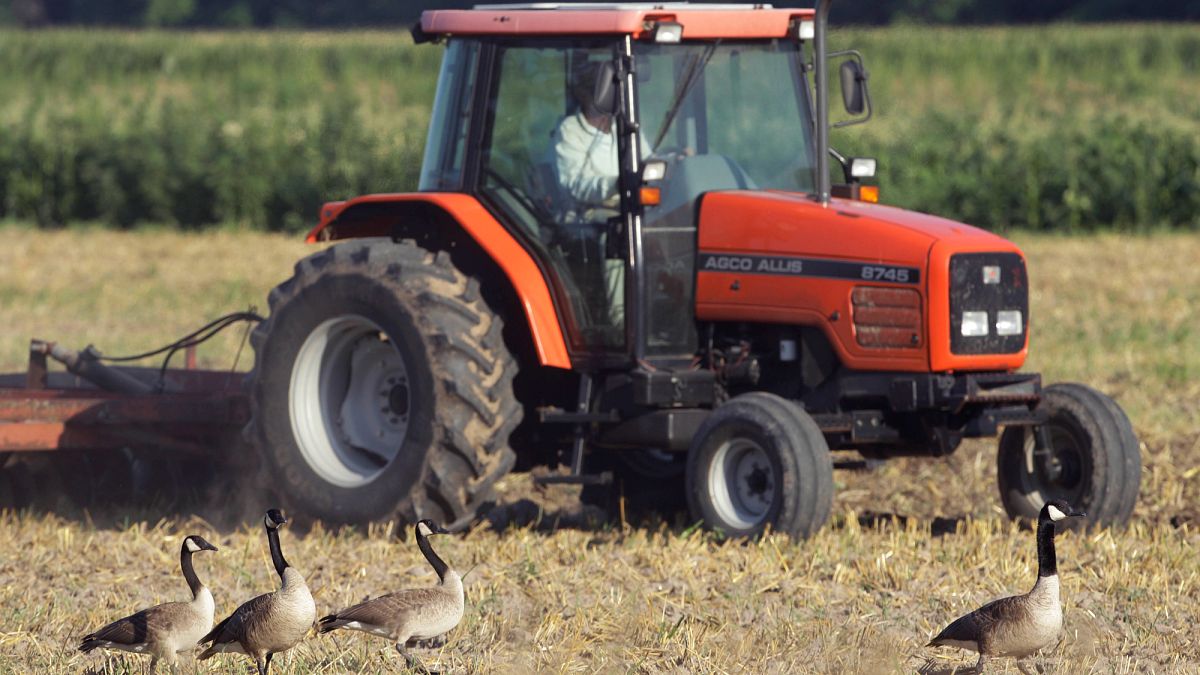The latest in a series of broad simplification initiatives, referred to as “omnibus” packages during Ursula von der Leyen’s second term, was unveiled in Brussels today, focusing on agriculture.
The measures are designed to reduce what the Commission sees as unnecessary administrative burdens in the implementation of the Common Agricultural Policy (CAP), the EU’s farming subsidy framework.
The changes aim to streamline on-farm checks and reporting requirements by addressing overlaps in areas such as organic farming regulations and environmental conditions.
“This package is much more than just simplification. It’s also about boosting competitiveness, increasing the resilience of the sector, and, of course, digitalisation,” said EU Agriculture Commissioner Christophe Hansen.
Among the proposals, national administrations will be encouraged to develop interoperable digital systems that adhere to the “report once, use multiple times” principle.
This would allow farmers to submit their data through a single platform, reducing paperwork, lowering costs, and improving overall farm management.
With this reform package, the Commission expects to save farmers up to €1.58 billion annually and national administrations around €210 million.
Green rules: relaxation or pragmatism?
One of the most debated aspects of the reform is the perceived relaxation of binding environmental conditions tied to CAP funding – a move seen as a response to last year’s widespread farmer protests.
The Commission insisted that it’s not dismantling the green architecture of the CAP, however, and that eight of nine environmental conditionalities will remain in place, but will now be implemented more pragmatically.
This means that member states will be allowed to meet EU objectives through equivalent national rules.
“If the conditionalities overlap with existing mandatory national requirements, we will consider them equivalent. No additional obligations will be imposed on farmers,” Hansen said in a press conference.
He added that the Commission has faced challenges in applying uniform environmental standards across a diverse agricultural sector, and is now adopting a more territorial, tailored approach.
Austrian Green MEP Thomas Waitz responded with caution, saying, “More flexibility for member states must not come at the expense of environmental protection and public health, especially with rising risks like water pollution from pesticides and fertilisers.”
Critics argue the EU may be backtracking on its green commitments, while others see this as a pragmatic response to a strategy that failed to meet its sustainability goals.
A new direction for agricultural governance
The package marks a significant shift in how the EU plans to govern agriculture, laying the groundwork for the upcoming proposal on the post-2027 CAP, expected to follow the presentation of the EU’s long-term budget.
To support small farmers, the threshold for annual lump-sum payments will be doubled from €1,250 to €2,500. Additionally, a new simplified funding option will allow small farms to receive up to €50,000 to improve their competitiveness.
Farmers affected by natural disasters or animal disease outbreaks will benefit from enhanced crisis payments under national CAP Strategic Plans, supported by more flexible risk management tools.
The EU agricultural reserve will now be reserved strictly for market-wide disruptions at the EU level, rather than national events like frost, to ensure more targeted use of funds.
Member states will also have greater leeway to revise their national strategic plans, namely the annual roadmaps that EU capitals sent to Brussels to fulfil CAP objectives. Only strategic amendments will require prior Commission approval, speeding up the process for farmers to benefit from changes.
The legislative proposal will now be submitted to the European Parliament and the Council for adoption.
